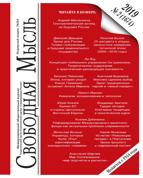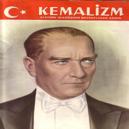Показано, что кемализм, хотя он и является государствообразующой идеологией, но, в отличие от распространенного мнения, не стал официальной идеологией современной Турции и должен изучаться как оппозиционная сила по крайне мере с начала 1950-х гг. Исследована разница между кемализмом и ататюркизмом. Продемонстрировано, что кемализм парадоксально владеет и государственно-фетишистскими, и просвещенными якобинскими интонациями одновременно, изучены шовинистский аспект кемализма, роль лево-кемализма и подход левых к кемализму. Показано, как усиливается влияние лево-кемализма, особенно в среде нового рабочего класса.
Kemalism: the origin and typology.
Kemalism, is a state-forming ideology, but in fact, is not the official ideology of modern Turkey, on the contrary, it should be studied as an opposition force, at least since the early 1950s. In this context, the difference between “Kemalism” and “ataturkism” is explored, which in Western scholarship means the same thing: nationalism, the term used for even proto-fascist and fascist movements. In the article we will show that Kemalism paradoxically owns both state-fetishist and enlightened Jacobin intonations simultaneously. As well as we will dwell on the chauvinist aspect of Kemalism, denote the role of left-Kemalism and the approach of leftist movements to Kemalism, and show how the influence of left-Kemalism is increasing, especially among the new working class.
 Ранний опыт государственного строительства большевиков и Конституция РСФСР 1918 года
Ранний опыт государственного строительства большевиков и Конституция РСФСР 1918 года
 7
7
 25496
|
Официальные извинения
25496
|
Официальные извинения
 972
972
 106320
|
Становление корпоративизма в современной России. Угрозы и возможности
106320
|
Становление корпоративизма в современной России. Угрозы и возможности
 239
239
 85202
85202











